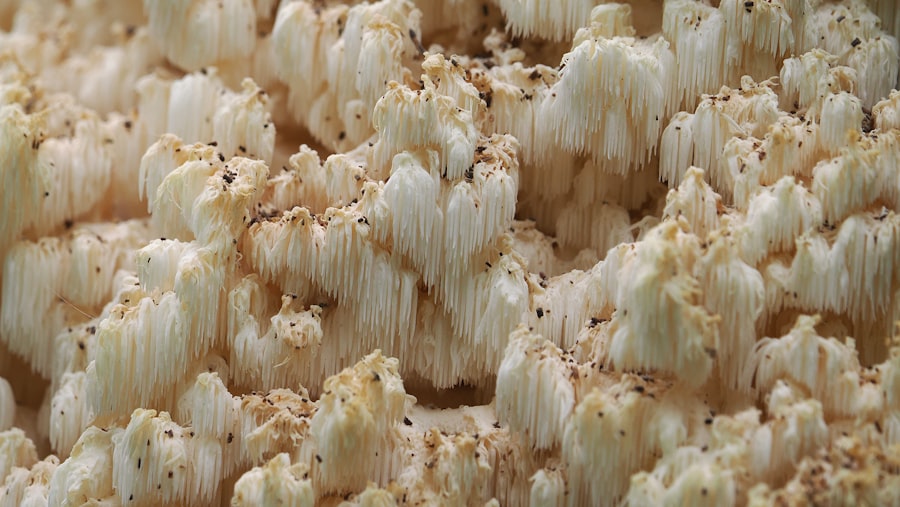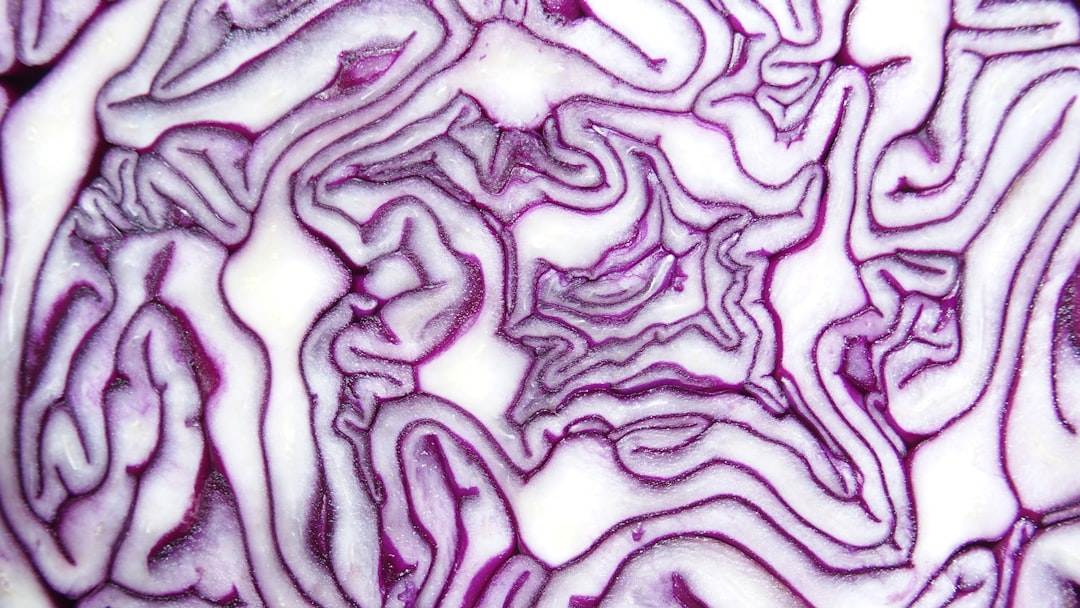As you age, your body undergoes numerous changes that can affect how you digest food, particularly cellulose, a type of fiber found in plant-based foods. Cellulose is a complex carbohydrate that your body cannot break down due to the lack of specific enzymes. Instead, it passes through your digestive system largely intact, playing a crucial role in maintaining gut health.
For seniors, understanding how cellulose digestion works is essential for promoting overall well-being and preventing digestive issues. In your digestive tract, cellulose acts as a bulking agent, helping to regulate bowel movements and prevent constipation. However, as you grow older, the efficiency of your digestive system may decline.
Factors such as reduced saliva production, slower gastric emptying, and changes in gut microbiota can all impact how well you digest cellulose. Recognizing these changes can empower you to make informed dietary choices that support your digestive health.
Key Takeaways
- Seniors may experience challenges in digesting cellulose due to age-related changes in the digestive system
- Fiber plays a crucial role in senior health by promoting regular bowel movements and preventing constipation
- Common challenges in cellulose digestion for seniors include decreased stomach acid production and slower intestinal transit time
- Poor cellulose digestion in seniors can lead to nutrient deficiencies, constipation, and increased risk of gastrointestinal disorders
- Dietary recommendations for seniors with cellulose digestion challenges include increasing water and fiber intake, and consuming easily digestible foods
The Role of Fiber in Senior Health
Fiber is an essential component of a healthy diet, especially for seniors. It not only aids in digestion but also contributes to various aspects of health, including heart health, weight management, and blood sugar control. As you age, incorporating adequate fiber into your diet becomes increasingly important to combat the natural decline in digestive function and to maintain overall health.
In particular, cellulose, a type of insoluble fiber, helps to add bulk to your stool and promotes regular bowel movements. This is vital for preventing constipation, a common issue among seniors. Additionally, fiber can help lower cholesterol levels and stabilize blood sugar levels, reducing the risk of chronic diseases such as heart disease and diabetes.
By prioritizing fiber-rich foods in your diet, you can enhance your overall health and well-being.
Common Challenges in Cellulose Digestion for Seniors

Despite the benefits of cellulose, many seniors face challenges when it comes to digesting this important fiber. One common issue is the decreased production of digestive enzymes and stomach acid that often accompanies aging. This reduction can hinder your body’s ability to break down food effectively, leading to discomfort and digestive problems.
Another challenge is the potential for gastrointestinal disorders that may arise with age. Conditions such as irritable bowel syndrome (IBS), diverticulitis, or even simple age-related changes in gut motility can complicate cellulose digestion. You may find that certain high-fiber foods cause bloating or gas, making it difficult to incorporate them into your diet.
Understanding these challenges is the first step toward finding solutions that work for you.
Health Risks Associated with Poor Cellulose Digestion
| Health Risk | Description |
|---|---|
| Constipation | Difficulty in passing stools due to inadequate fiber intake |
| Diverticulitis | Inflammation or infection of small pouches in the digestive tract |
| Colon Cancer | Increased risk of developing cancer in the colon |
| Heart Disease | Higher levels of cholesterol due to poor digestion of cellulose |
When cellulose digestion is compromised, it can lead to a range of health risks that may significantly impact your quality of life. One of the most immediate concerns is constipation, which can cause discomfort and lead to more severe complications such as hemorrhoids or fecal impaction. Chronic constipation can also contribute to a feeling of fullness or bloating, which may deter you from eating a balanced diet.
Moreover, poor cellulose digestion can have long-term implications for your health. A diet low in fiber has been linked to an increased risk of developing chronic diseases such as cardiovascular disease and type 2 diabetes. Additionally, inadequate fiber intake can negatively affect your gut microbiome, leading to an imbalance that may result in inflammation and other health issues.
By recognizing these risks, you can take proactive steps to improve your cellulose digestion and overall health.
Dietary Recommendations for Seniors with Cellulose Digestion Challenges
If you are experiencing difficulties with cellulose digestion, there are several dietary recommendations that can help ease your symptoms while ensuring you still receive the necessary nutrients. First and foremost, it’s essential to gradually increase your fiber intake rather than making sudden changes. This approach allows your digestive system to adjust without causing excessive discomfort.
Incorporating a variety of fiber sources into your diet is also beneficial. While cellulose is found in fruits and vegetables, consider adding other types of fiber such as soluble fiber from oats or legumes. Foods like bananas, apples, and beans can provide a gentler introduction to fiber while still offering health benefits.
Additionally, cooking vegetables can make them easier to digest while retaining their nutritional value.
The Importance of Hydration for Cellulose Digestion in Seniors

Hydration plays a critical role in cellulose digestion and overall digestive health. As you consume more fiber-rich foods, it becomes increasingly important to drink adequate amounts of water. Fiber absorbs water in the digestive tract, which helps to soften stool and promote regular bowel movements.
Without sufficient hydration, increasing fiber intake can lead to constipation rather than alleviating it. For seniors, staying hydrated can sometimes be a challenge due to factors such as decreased thirst sensation or mobility issues that make it difficult to access fluids. To combat this, consider setting reminders to drink water throughout the day or incorporating hydrating foods like soups and fruits into your meals.
By prioritizing hydration alongside fiber intake, you can significantly improve your cellulose digestion and overall digestive health.
Strategies for Improving Cellulose Digestion in Seniors
Improving cellulose digestion requires a multifaceted approach that includes dietary adjustments, lifestyle changes, and mindful eating practices. One effective strategy is to chew your food thoroughly before swallowing. This simple act can help break down food particles more effectively and ease the burden on your digestive system.
Additionally, consider eating smaller meals more frequently throughout the day rather than large meals that may overwhelm your digestive tract. This approach can help regulate digestion and prevent discomfort associated with high-fiber foods. Incorporating probiotics into your diet through yogurt or fermented foods can also support gut health and enhance cellulose digestion by promoting a balanced microbiome.
The Role of Probiotics in Supporting Cellulose Digestion in Seniors
Probiotics are beneficial bacteria that play a vital role in maintaining gut health and supporting cellulose digestion.
By introducing probiotics into your diet, you can help restore balance to your gut flora and improve your body’s ability to process cellulose.
Fermented foods such as yogurt, kefir, sauerkraut, and kimchi are excellent sources of probiotics that can be easily incorporated into your meals. Additionally, probiotic supplements are available if you find it challenging to obtain enough through food alone. By prioritizing probiotics in your diet, you can enhance your digestive health and improve your overall well-being.
Exercise and its Impact on Cellulose Digestion in Seniors
Regular physical activity is another crucial factor that influences cellulose digestion and overall digestive health in seniors. Exercise stimulates the muscles in your gastrointestinal tract, promoting better movement of food through the digestive system. This increased motility can help alleviate constipation and improve the efficiency of cellulose digestion.
Engaging in moderate exercise such as walking, swimming, or yoga can be particularly beneficial for seniors. Not only does it support digestion, but it also contributes to overall physical health by improving cardiovascular fitness and maintaining muscle mass. Finding an exercise routine that you enjoy will make it easier to stay active and reap the benefits for your digestive system.
Medical Interventions for Seniors with Severe Cellulose Digestion Challenges
In some cases, seniors may experience severe challenges with cellulose digestion that require medical intervention. If dietary changes and lifestyle modifications do not yield improvements, consulting with a healthcare professional is essential. They may recommend specific tests to identify underlying conditions affecting digestion or prescribe medications that can aid in managing symptoms.
In certain situations, a registered dietitian may be beneficial in creating a tailored meal plan that addresses your unique needs while ensuring adequate nutrient intake. They can provide guidance on how to incorporate fiber-rich foods without causing discomfort and suggest appropriate supplements if necessary.
Lifestyle Changes to Support Cellulose Digestion in Seniors
Making lifestyle changes can significantly enhance cellulose digestion and overall health for seniors. In addition to dietary adjustments and regular exercise, consider adopting stress-reduction techniques such as mindfulness or meditation. Stress can negatively impact digestion by slowing down gut motility and exacerbating symptoms like bloating or discomfort.
Establishing a consistent eating schedule can also promote better digestion by training your body to expect food at certain times throughout the day.
By embracing these lifestyle changes alongside dietary modifications, you can create a holistic approach that supports healthy cellulose digestion as you age.
In conclusion, understanding cellulose digestion is vital for seniors seeking to maintain their health and well-being as they age. By recognizing the role of fiber in their diets and addressing common challenges associated with cellulose digestion, seniors can take proactive steps toward improving their digestive health through dietary recommendations, hydration strategies, exercise routines, and lifestyle changes. With the right approach, you can enjoy the benefits of a fiber-rich diet while minimizing discomfort and enhancing your overall quality of life.
Cellulose digestion issues in seniors can significantly impact their overall health and nutritional intake. As people age, their digestive systems may become less efficient, leading to difficulties in breaking down cellulose, a key component of dietary fiber found in fruits and vegetables. This can result in digestive discomfort and nutrient absorption challenges. For more insights into how seniors can manage these digestive issues and improve their dietary habits, you can read a related article on this topic by visiting Explore Senior Health. This resource provides valuable information on maintaining a balanced diet and addressing common digestive concerns in the elderly.
Over 60? Ditch THIS Sneaky Veggie Wrecking Digestion, Bloating, and Microbiome Balance.
FAQs
What is cellulose digestion?
Cellulose digestion is the process by which the body breaks down cellulose, a complex carbohydrate found in the cell walls of plants, into simpler forms that can be absorbed and utilized for energy.
Why do seniors experience cellulose digestion issues?
Seniors may experience cellulose digestion issues due to age-related changes in the digestive system, such as decreased production of digestive enzymes and reduced motility of the gastrointestinal tract. These changes can make it more difficult for the body to break down and absorb cellulose.
What are the symptoms of cellulose digestion issues in seniors?
Symptoms of cellulose digestion issues in seniors may include bloating, gas, constipation, and discomfort after eating high-fiber foods. These symptoms can impact overall digestive health and quality of life.
How can seniors improve cellulose digestion?
Seniors can improve cellulose digestion by consuming smaller, more frequent meals, staying hydrated, and incorporating digestive aids such as probiotics and digestive enzymes. Additionally, gradually increasing fiber intake and choosing easily digestible forms of fiber, such as cooked vegetables and fruits, can help improve cellulose digestion.
When should seniors seek medical advice for cellulose digestion issues?
Seniors should seek medical advice for cellulose digestion issues if they experience persistent or severe digestive symptoms, unintended weight loss, or if they have underlying health conditions that may impact digestion, such as diabetes or gastrointestinal disorders. A healthcare professional can provide personalized recommendations and treatment options.
